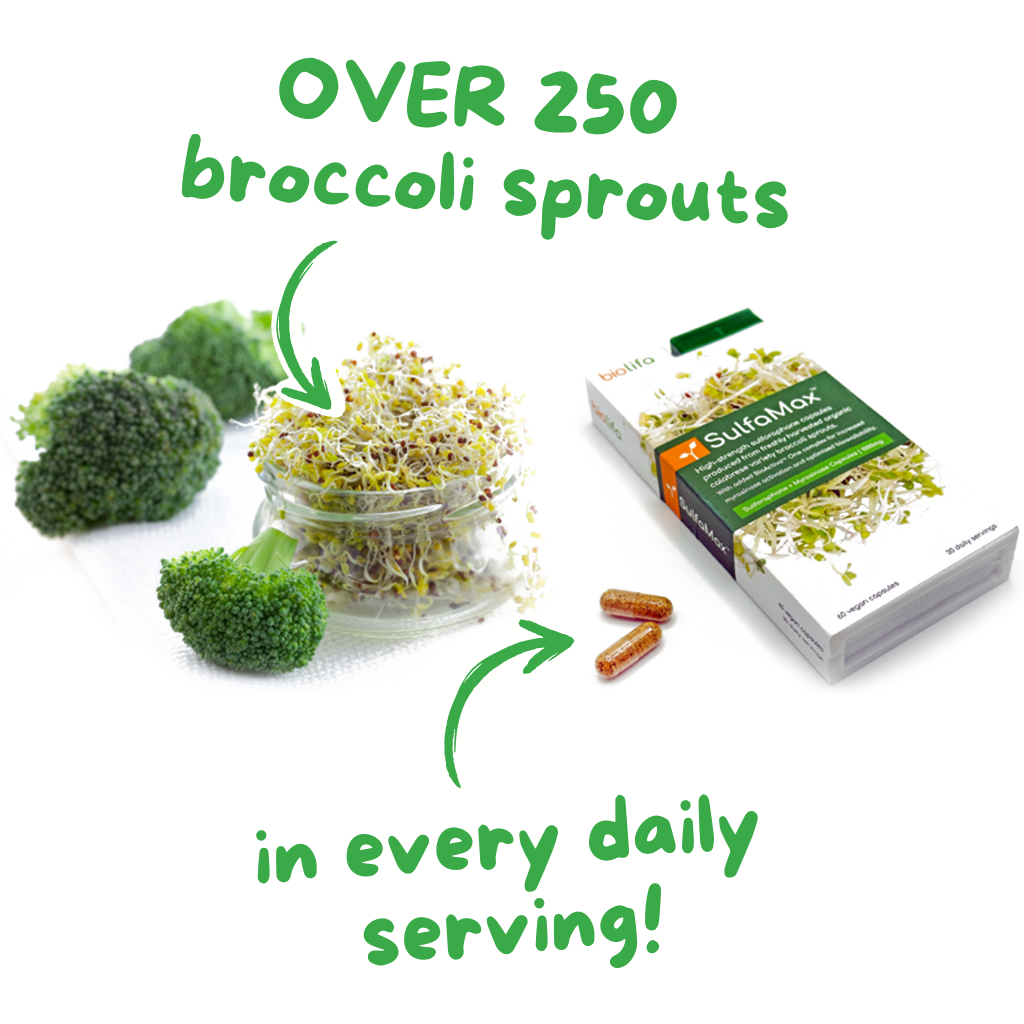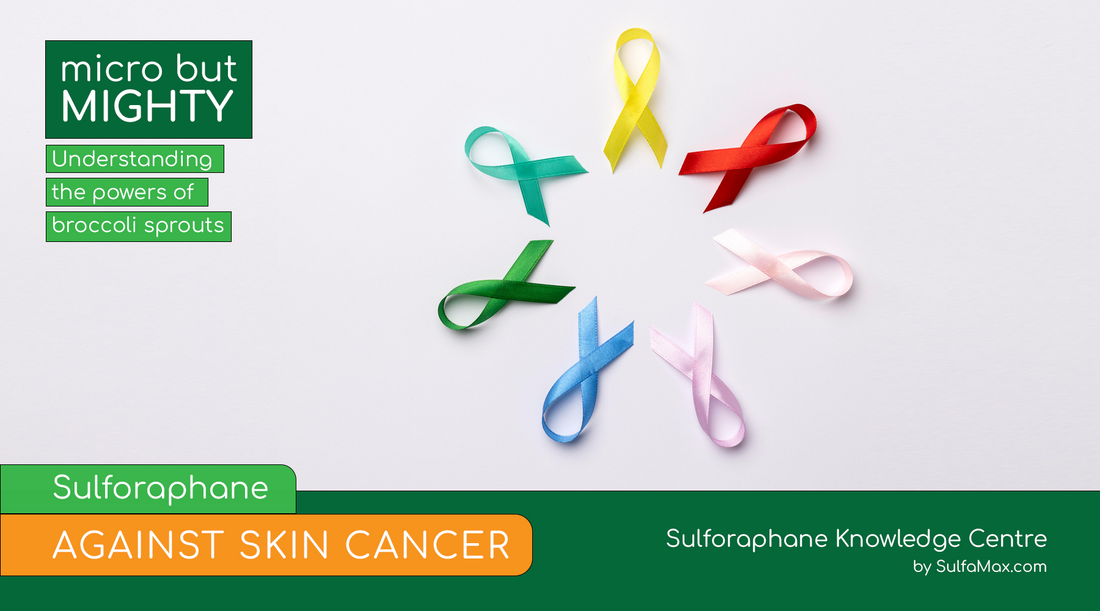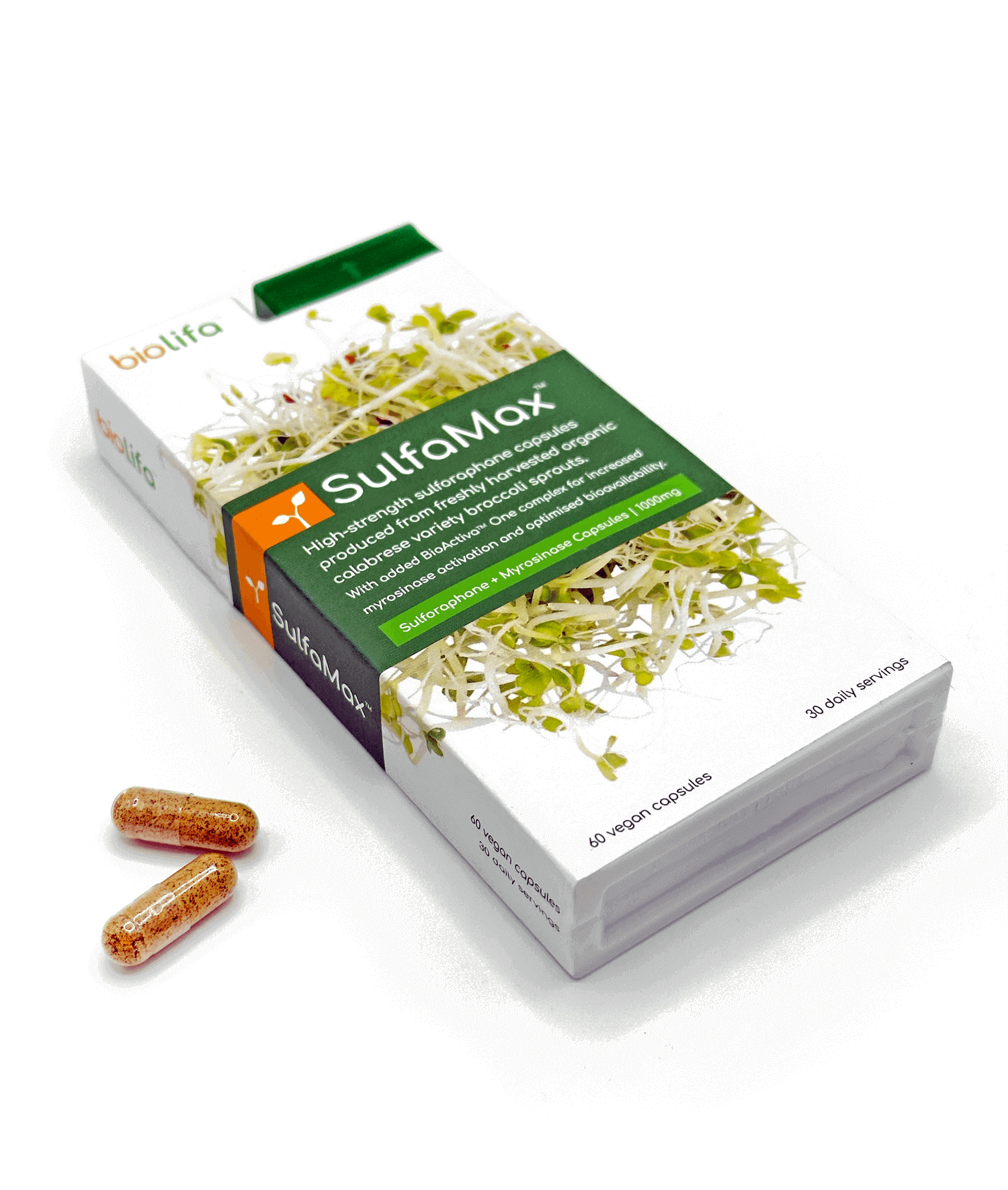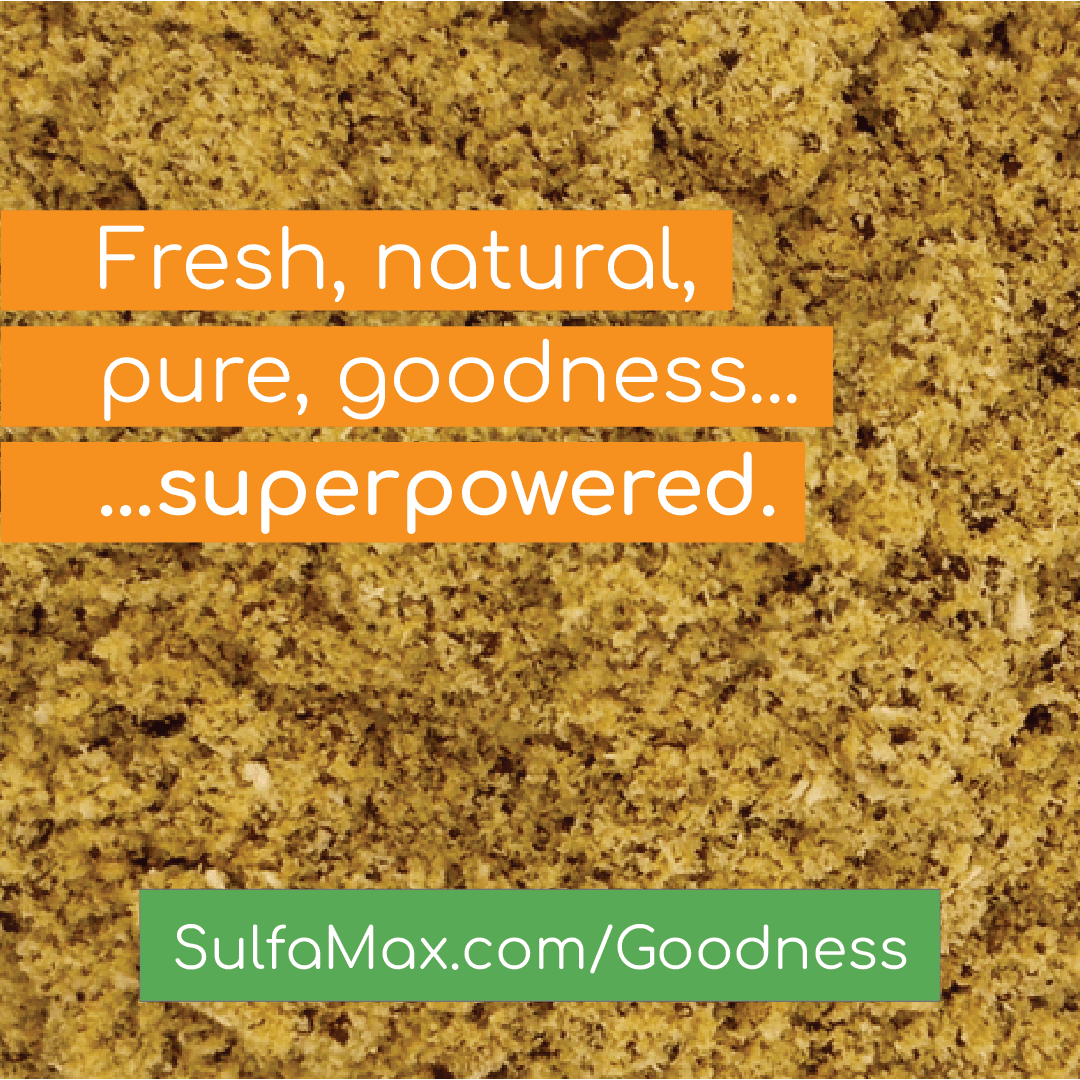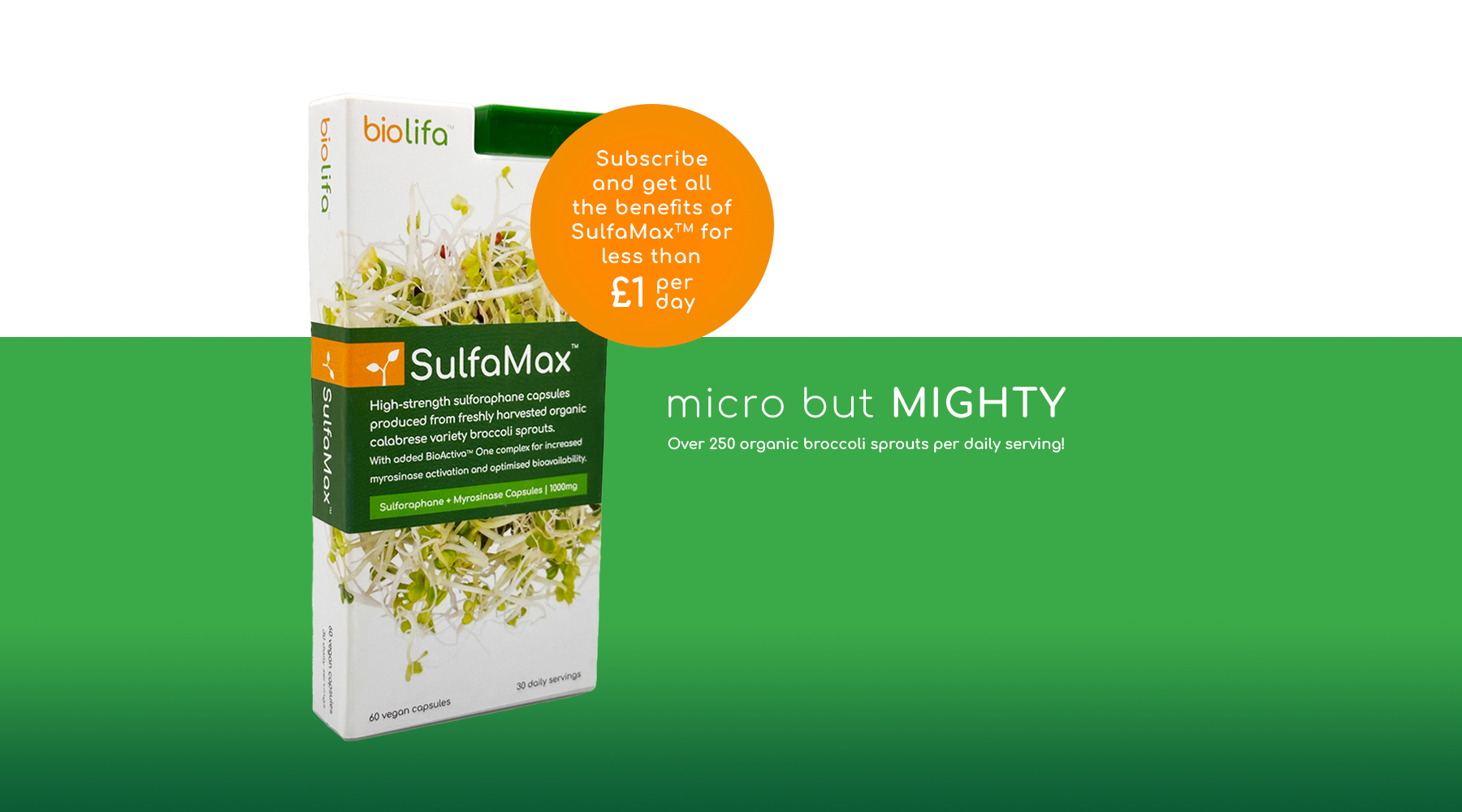Skin cancer is the most common type of cancer in the United States, with over 3.5 million cases diagnosed each year. While the most effective way to prevent skin cancer is by protecting your skin from the sun's harmful rays, recent research has shown that sulforaphane, a compound found in cruciferous vegetables, may also be effective in the prevention and treatment of this disease.
Sulforaphane is a powerful antioxidant that has been shown to protect against the harmful effects of UV radiation, the primary cause of skin cancer. It works by activating a network of genes that produce enzymes that protect against oxidative stress and inflammation, two factors that play a major role in the development of skin cancer. In addition, sulforaphane has been shown to have anti-cancer properties that can directly target and destroy cancer cells. It does this by inducing apoptosis, a process by which cancer cells self-destruct, and by inhibiting the growth and proliferation of cancer cells.
One study published in the journal Cancer Letters found that sulforaphane was able to inhibit the growth of melanoma cells, the deadliest form of skin cancer. Another study published in the Journal of Dermatological Science found that sulforaphane was able to induce apoptosis in human melanoma cells. While these studies are promising, more research is needed to fully understand the potential benefits of sulforaphane in the prevention and treatment of skin cancer.
However, the existing evidence suggests that incorporating more cruciferous vegetables into your diet or taking a sulforaphane supplement may be an effective way to reduce your risk of developing skin cancer and enhance the effectiveness of traditional cancer treatments.
One way to increase your intake of sulforaphane is by eating more cruciferous vegetables such as broccoli, cauliflower, kale, and Brussels sprouts. These vegetables are not only rich in sulforaphane, but they also contain other compounds that have been shown to have anti-cancer properties, such as indole-3-carbinol and glucosinolates.
If you are not a fan of these vegetables or have trouble incorporating them into your diet, you may consider taking a sulforaphane supplement. These supplements are typically derived from broccoli sprouts and can provide a concentrated dose of this powerful compound.
However, it is important to speak with a healthcare professional before starting to take a supplement, as they can interact with other medications and may not be appropriate for everyone. In addition to incorporating more sulforaphane into your diet, there are several other steps you can take to reduce your risk of developing skin cancer. These include:
• Protecting your skin from the sun: This means wearing protective clothing, seeking shade during the hottest parts of the day, and wearing sunscreen with at least SPF 30.
• Avoiding tanning beds: Tanning beds are a major source of UV radiation and can increase your risk of developing skin cancer.
• Performing regular skin self-exams: This can help you detect any changes in your skin early, when they are most treatable.
• Seeing a dermatologist regularly: A dermatologist can help you assess your risk of developing skin cancer and recommend appropriate screenings and treatments.
In conclusion, while more research is needed to fully understand the potential benefits of sulforaphane in the prevention and treatment of skin cancer, the existing evidence suggests that it may be a promising tool in the fight against this disease.
By incorporating more cruciferous vegetables into your diet or taking a sulforaphane supplement, you may be able to reduce your risk of developing skin cancer and enhance the effectiveness of traditional cancer treatments.
